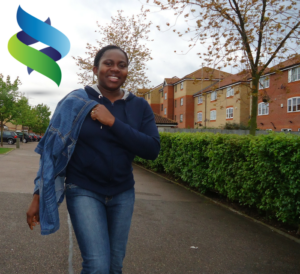
Be a Great Listener and less of a Coach

As I sat on the bus heading home, I knew my best friend couldn’t wait to hear all the juicy details about my trip—especially because I had met a potential new boyfriend. But before any of that, I was craving one of my favorite meals. I didn’t want any excuses, so I texted her, sent DMs, and followed up with a call, asking her to make it for me. I made sure to cover all bases.
When I arrived, she was in the bathroom but convinced me to get some waakye for breakfast. I still had my cravings, but off to the market we went. Unfortunately, we couldn’t find all the ingredients we needed. After our meal, ECG did us the favor of a power outage, plunging the room into darkness. As we finished eating, she finally said, “Now I’m ready to listen—start from the very top.”
As I sat on the bus heading home, I knew my best friend couldn’t wait to hear all the juicy details about my trip—especially because I had met a potential new boyfriend. But before any of that, I was craving one of my favorite meals. I didn’t want any excuses, so I texted her, sent DMs, and followed up with a call, asking her to make it for me. I made sure to cover all bases.
I told her everything, except some intimate details. It involved me sleeping with someone I’d only known for a week. Her reaction? Immediate disappointment. “I’m so disappointed in you,” she said, clearly hurt. She continued, “I know you’re responsible, but you let me down.”
Before I even arrived, she suspected something was off, and it had been bothering her all day. She spent the entire time snapping at people, displacing her frustration—poor boyfriend, I’m sure he bore the brunt of it. But being the good man he is, they made up with some steamy, stress-relieving intimacy later that night.
Back to the conversation: she opened up about her own relationship. “I had sex yesterday too,” she admitted, “but the difference is, it was with someone I trust. Someone I’ve been through thick and thin with. You, on the other hand, slept with someone you barely know.”
Her words weren’t easy to hear, but I knew they came from a place of love. She said, “You deserve the kind of love I have—genuine, after kissing all the wrong frogs. I just want the best for you.” I appreciated her pep talk, even if it stung a little.
On the ride home, I realized just how much I valued her. Not just as a friend, but as a sister—the one I never had. I also understood that while her advice was well-intended, I needed to take it with a pinch of salt.
What I learned from this experience is the importance of listening. Too often, we rush to judge, condemn, or assume we know what someone is going through. But true listening is more than just hearing words. It’s about paying attention with thoughtful care, receiving, interpreting, and understanding both the spoken and unspoken messages.
But how can we avoid being judgmental? How can we become better listeners?
• Practice Patience In today’s fast-paced world, we often want to rush conversations, expecting quick answers or fixes. But deep listening requires patience. When my friend listened to my story, she didn’t interrupt or rush me, even though she was clearly upset. It’s also about being attuned to body language, tone, and pauses. That patience gave me the courage to be honest.
• Listen to Understand, Not to Respond Too often, we listen with the intention of replying or giving advice. My friend had every right to be disappointed, but she chose first to understand why I did what I did. She asked questions and genuinely listened to my answers before expressing her feelings. That’s key: listening with empathy instead of immediately forming opinions or advice.
• Show Empathy: Being empathetic doesn’t mean agreeing with someone’s choices; it means understanding their emotions. My friend shared her disappointment but also acknowledged that she knew I was capable of better. Her empathy wasn’t just in her words, but in her willingness to listen and care for me, despite her feelings.
• Offer Support, Not Solutions: Sometimes, we don’t need someone to solve our problems—we just need someone to be there. My friend didn’t try to fix my situation or tell me what to do next. Instead, she offered support through her presence and advice rooted in love. She wanted me to understand her perspective, but more importantly, she wanted me to feel supported.
• Ask Before Offering Advice We all have opinions, but not everyone is looking for advice. Sometimes people just want to vent or share their experiences. I appreciated that my friend asked if she could speak freely before offering her thoughts. She sought permission, and that made the conversation feel more supportive. It’s a small step, but asking, “Do you want advice, or do you just need me to listen?” can make a big difference.
Listening without judgment is an art. It’s something we have to practice daily, with ourselves and with others. I realized that in many situations, I had been quick to judge—friends, family, even myself. I had missed opportunities to truly connect because I was too busy condemning or offering advice that wasn’t asked for.
From now on, I want to listen more deeply, with patience and empathy. I want to ask, “Do you want advice or just someone to listen?” before jumping into solutions. I want to create spaces where people can share openly, without fear of being judged..
Most importantly, I want to be that kind of friend to others—and to myself.
With Love,
Rammie.
I have been so afraid of loosing those l love until l realised that no one is afraid of loosing me. When you get to know your partner has wrong intentions, please walk away with no remorse. If you happen get on the wrong train in life (meaning in the wrong relationship), be sure to get off at the first stop. The longer you stay, the more expensive the return trip will cost you.




















Post Comment